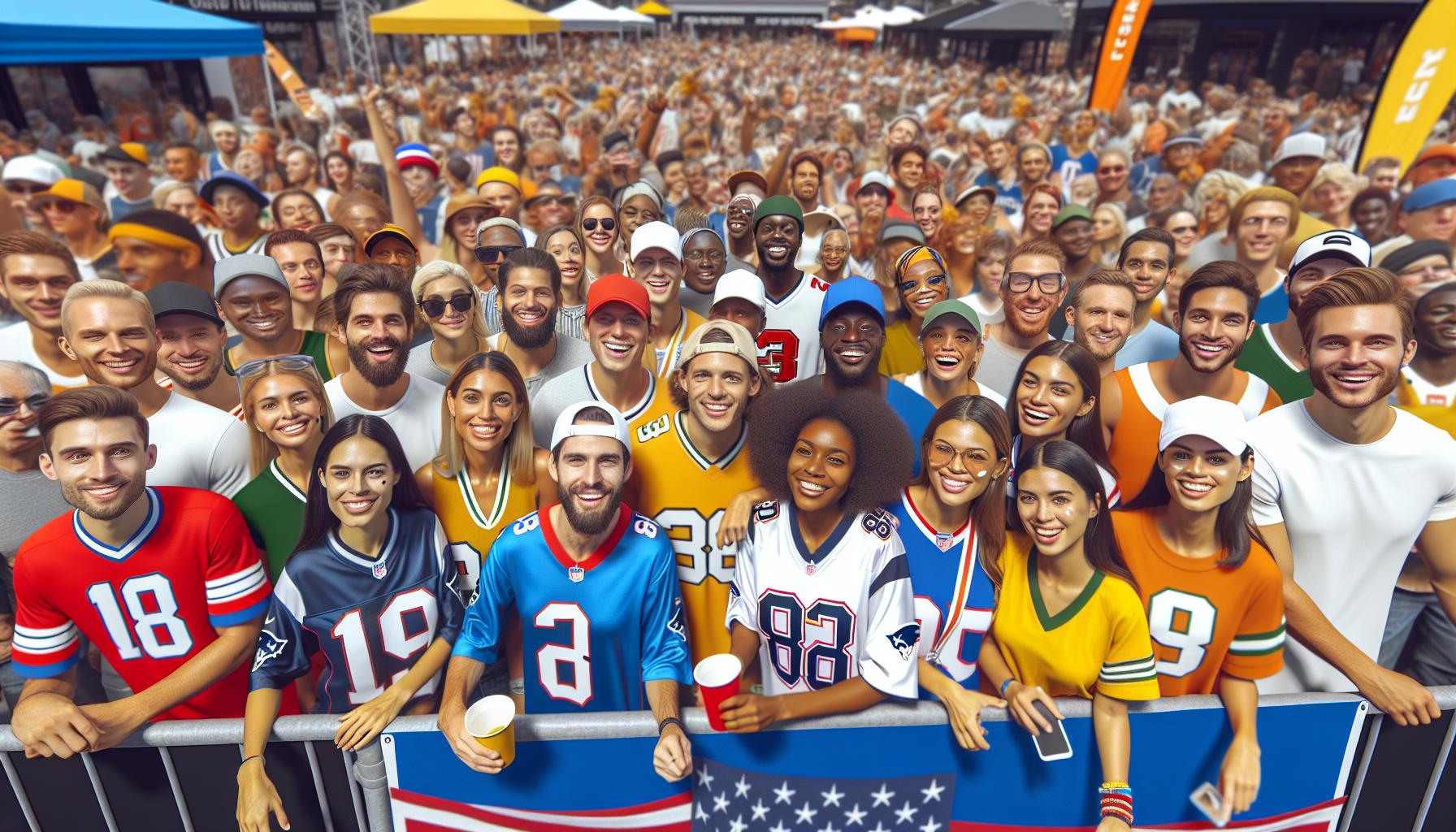In the ever-evolving world of marketing, staying ahead of the game means keeping an eye on the latest sport and event trends. From viral TikTok challenges to the rise of eSports, these trends aren’t just entertaining; they’re shaping how brands connect with audiences. Companies that can ride the wave of these trends often find themselves scoring big with their marketing strategies.
Imagine a world where a clever meme about a sports event turns into a brand’s golden ticket to viral fame. It’s not just about selling products anymore; it’s about creating experiences that resonate. As the lines between sports, entertainment, and marketing blur, understanding these trends becomes crucial for brands aiming to hit their target audience right in the feels. So grab your popcorn and get ready to explore how these dynamic shifts are revolutionizing the marketing playbook.
Describe The Impact of Sport and Event Trends on Marketing
Staying current with sport and event trends plays a crucial role in marketing strategies. Viral phenomena such as TikTok challenges enhance brand visibility. The rise of eSports captures new audiences, expanding marketing opportunities. Increasingly, events prioritize digital engagement, creating interactive experiences that resonate with consumers.
Brands utilize social media platforms to amplify their messaging. This approach fosters connection and encourages real-time conversations. Live streaming becomes common, allowing viewers to engage with events remotely. Accessibility broadens the audience for sports and entertainment, offering brands a greater reach.
Nostalgia marketing gains traction as brands integrate retro elements into campaigns. Leveraging familiar cultural references strengthens emotional bonds with audiences. Additionally, sustainability trends prompt brands to align their messaging with eco-conscious values. This alignment speaks to a growing demographic that prioritizes environmental responsibility.
Real-time data analytics inform marketing strategies, driving more targeted campaigns. Businesses analyze viewer behavior and engagement metrics to refine their approaches. Event collaborations often emerge, combining brands to increase visibility and impact. These partnerships create multifaceted marketing opportunities that attract diverse audiences.
Experiential marketing gains prominence, allowing brands to create immersive experiences tied to sports and events. These interactive opportunities enhance consumer engagement, leading to more meaningful connections. Overall, understanding and adapting to these trends is vital for brands aiming to succeed in an evolving marketing landscape.
Key Trends in Sports Marketing

Understanding key trends in sports marketing enhances brand visibility and engagement with target audiences.
Rise of Digital Engagement
Digital engagement continues to dominate the marketing landscape in sports. Brands leverage social media platforms to create interactive experiences, fostering real-time conversations. Instant feedback from fans drives brands to adapt their strategies promptly. Additionally, live streaming events facilitates remote audience participation, expanding reach beyond physical venues. Surveys indicate that 65% of sports fans prefer engaging with teams and events through digital channels. This preference presents opportunities for brands to enhance follower interactions and build loyal communities around their values. Innovative content, such as behind-the-scenes looks and athlete interviews, captivates viewers further, transforming passive consumption into active participation.
Shift Towards Sustainability
Sustainability trends now shape consumer expectations in sports marketing. Brands increasingly adopt eco-conscious practices, aligning with a growing demographic that values environmental responsibility. Surveys show that 72% of consumers consider a brand’s sustainability policies when making purchase decisions. Incorporating sustainable initiatives into marketing campaigns enhances brand perception and strengthens emotional connections. Examples include promoting green packaging, supporting conservation efforts, and sponsoring eco-friendly events. By championing sustainability, brands not only appeal to environmentally aware consumers but also position themselves as leaders in social responsibility. Adapting to these trends fosters deeper relationships, ensuring lasting engagement in a competitive marketplace.
Event Marketing Strategies

Event marketing strategies capitalize on emerging trends to enhance audience connection and brand recognition. These approaches create memorable experiences that engage consumers in meaningful ways.
Experiential Marketing
Experiential marketing immerses consumers in engaging activities tied to events or sports. This hands-on approach allows audiences to interact directly with brands, fostering emotional connections. For example, brands like Pepsi and Nike have successfully executed pop-up events and interactive booths, generating buzz and excitement. Engaging fans in this way leads to increased brand loyalty. Real-time events enable brands to collect feedback and adjust strategies instantly. As a result, brands can create bespoke experiences that resonate with their target demographics.
Social Media Integration
Social media integration amplifies event marketing efforts. Brands are utilizing platforms like Instagram and TikTok to share dynamic content and engage with users. Real-time updates during events encourage audience participation and build online communities. According to surveys, 65% of sports fans prefer digital channels for interaction, guiding brands to focus on this area. Through strategic hashtags and influencer partnerships, brands can enhance visibility and reach. Interactive polls and giveaways further motivate consumer engagement. Ultimately, leveraging social media effectively enhances both reach and relevance in a competitive landscape.
Impact on Brand Partnerships

Brand partnerships significantly evolve with trends in sports and events. Staying ahead allows brands to leverage opportunities for greater visibility.
Sponsorship Evolution
Sponsorships increasingly reflect shifts in consumer values. Brands align with sporting events that emphasize inclusivity and sustainability. For instance, the growing focus on diversity in sports marketing resonates with broader audience demographics. According to surveys, 72% of consumers evaluate a brand’s sustainability when making purchases. This data reinforces the need for brands to secure partnerships with eco-conscious events, enhancing credibility. Brands that adapt their sponsorship strategies strengthen their market presence while fostering emotional connections with audiences.
Community Involvement
Community involvement is vital in modern marketing strategies. Brands actively engage with local sports events, making meaningful connections. Research shows that consumers prefer brands supporting their communities, reinforcing loyalty. Collaborations with local athletes and teams can amplify such efforts. By sponsoring grassroots initiatives, brands gain visibility while contributing positively. Integrating community engagement into marketing campaigns enhances reputation and fosters deeper relationships with consumers. Organizations that prioritize these interactions effectively strengthen their ties within the community.
Create Memorable Experiences
The impact of sport and event trends on marketing is undeniable. Brands that harness these trends can create memorable experiences that resonate with their audiences. By embracing digital engagement and fostering real-time interactions, companies can build loyal communities and enhance brand visibility.
Aligning with sustainability and inclusivity not only strengthens brand credibility but also appeals to a growing demographic that values responsible practices. As the marketing landscape continues to evolve, staying ahead of these trends will be crucial for brands looking to thrive in a competitive environment. Adapting to these changes ensures that brands remain relevant and connected to their audiences.



